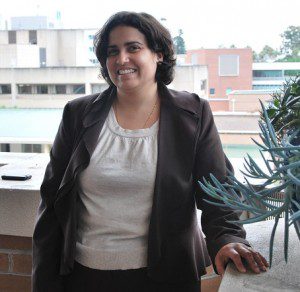
The Ingham Institute’s Professor Meera Agar is the driving force behind an Australian first medical cannabis trial that aims to improve the quality of life for terminally ill cancer patients.
Prof Agar, who is also palliative care clinical director at Fairfield’s Braeside Hospital and UNSW conjoint associate professor, says that the trial will evaluate two types of cannabis products, vaporised leaf cannabis and pharmaceutical, and will be implemented via a two stage process.
It will supplement an existing body of evidence based research to help better understand and evaluate the potential benefits of medical cannabis for the terminally ill.
Previous studies have indicated medicinal cannabis offers strong potential to alleviate pain and improve the quality of life for epilepsy patients.
“The objective of the trial is to explore and assess the potential of cannabis to moderate the symptoms that cancer patients at the end of life phase experience,” says Prof Agar.
“Symptoms such as fatigue, low appetite, reduced taste and smell for food, low mood, weight loss, nausea, insomnia and pain, which can be highly distressing for patients and impacts the quality of the (often limited) time that they have in care significantly.
[social_quote duplicate=”no” align=”default”]“Giving patients a mechanism to manage these symptoms and to be as comfortable and pain free as possible are at the heart of this research project,” Prof Agar said.[/social_quote]
The first part of the trial, called Phase 2, will be conducted at the Calvary Mater Newcastle Hospital and will involve approximately 30 patients to ascertain critical information such as suitable method of consumption, possible side effects and recommended dosage quantities.
The trial will commence early next year, with results anticipated by the end of 2016.
Clinical outcomes of the trial will be collected and analysed by the Ingham Institute research team, with the results determining the extension of the trial.
“The results of the Phase 2 study will act as the foundation of the second part of the trial, Phase 3, which we will roll out to a broader range of patients in major hospitals throughout NSW,” Prof Agar said.
 Ingham Institute research director, Professor Michael Barton, said that the development represented a huge leap forward in the treatment options available to terminally ill cancer patients in NSW.
Ingham Institute research director, Professor Michael Barton, said that the development represented a huge leap forward in the treatment options available to terminally ill cancer patients in NSW.
“Advancing and accelerating new treatment options for cancer patients in palliative care to improve end of life care is a challenging area of cancer research that is a core component of the Ingham Institute’s work in cancer research,” Prof Barton said.
“Associate Professor Agar is at the forefront of this very difficult area so this announcement is big news for the progression of her research here at the Ingham Institute and for the management and clinical wellbeing of the terminally ill in NSW.”
